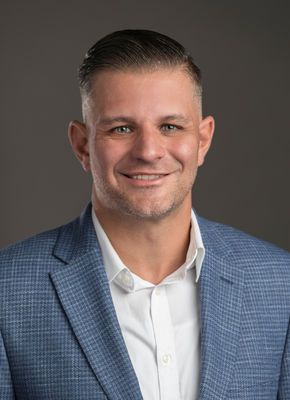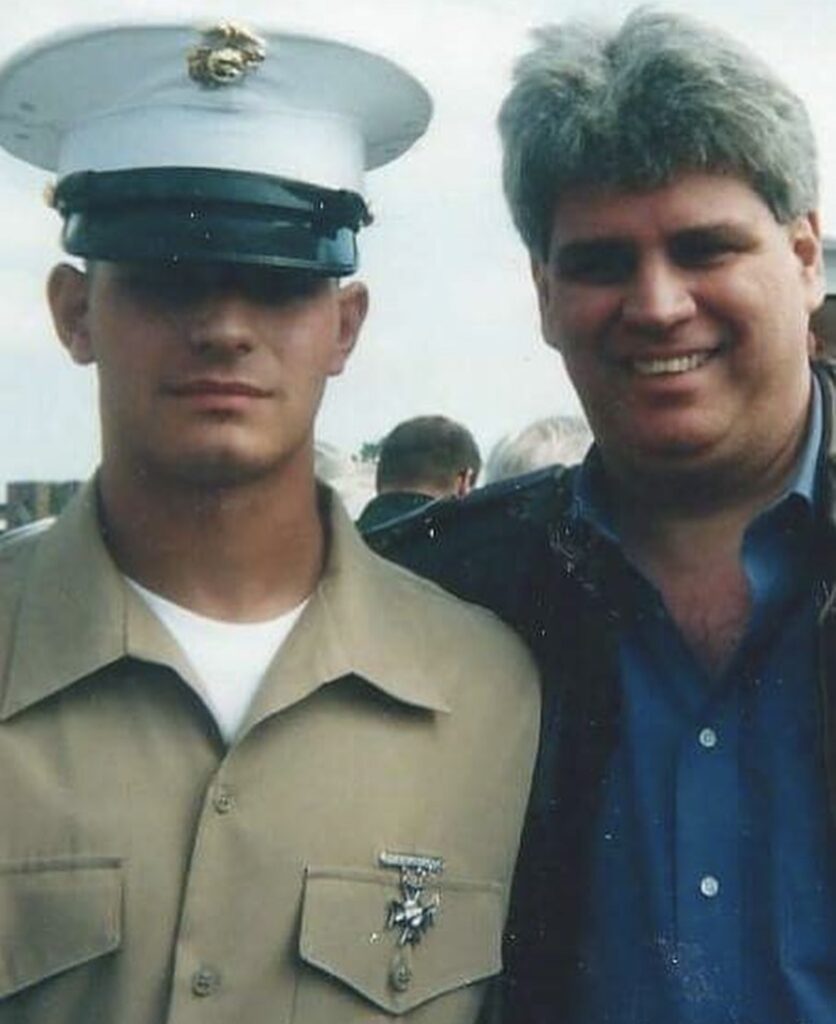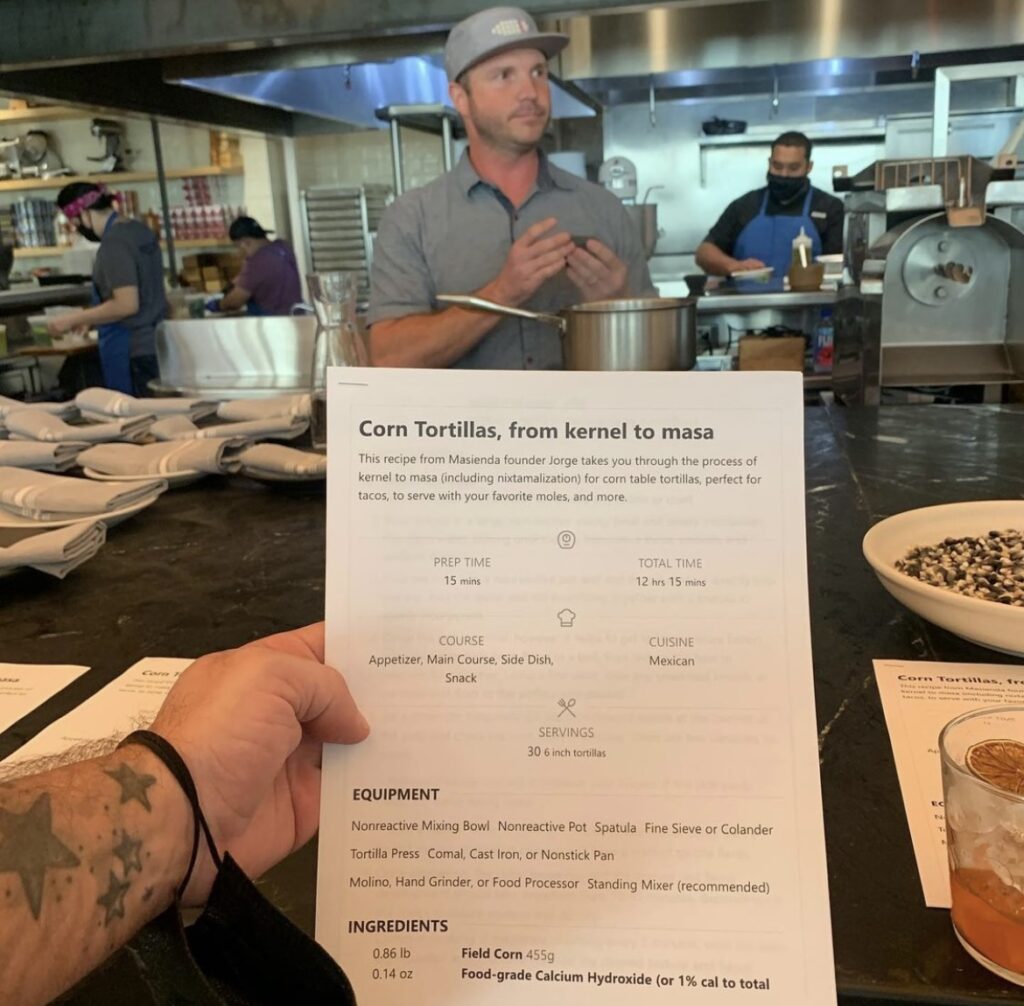
Richard Garcia has held many roles over his career. A distinguished member of the US Marine Corps. Star chef. And now, Senior Vice President of Food and Beverage at Remington Hotels.
We recently had the chance to talk about his career journey, what he’s learned along the way – and why he will never cut corners on providing a great guest experience.
“Too many in the industry are still using staff shortages and supply chain issues as an excuse to provide subpar service. That’s not something Remington is doing and we will never do. Instead, we will make changes elsewhere, such as streamlining our menus to ensure the staff we do have can execute them properly. I’d much rather do that than take away from the guest experience.”
The payoff for providing a superior experience is higher than it’s ever been, he told me. “When you provide this, you earn the loyalty of guests, you turn loyal guests into advocates, which in turn improves the profitability of your business.”
500,000 opportunities for shaping the guest experience
Richard had just reviewed some stats before our conversation.
“We have 35 hotels on our core menu platform today, and those 35 hotels have generated half a million visitors in just five months.”
That’s a huge opportunity for Remington and its hotel properties. “It’s half a million opportunities to start new relationships and a massive marketing opportunity for us.”
Coming out of the pandemic, the stakes are higher than ever – not just from opportunity cost, but because of the higher amounts each guest is spending for their rooms.
“We’ve stripped away a lot of services that we used to give in our rooms – and I understand why. But now that puts a little more pressure on food and beverage to make up that slack. Today, food and beverage is not only the first impression for many guests – but plays a big role in deciding if that guest will return.“
Richard shared an example of staying at an iconic New York City hotel recently where the room was $400, but sitting at the restaurant felt like he was getting a fraction of the experience he would expect. “I spent $120 on breakfast and got it in takeout containers!”
Food and beverage teams have so many touch points in opportunities to enhance the experience of the guest. “We touch them at breakfast, through a market or coffee shop, through a rooftop bar experience – and sometimes even through an in-room dining experience.”
While there are many touchpoints, Richard looks at each one of these as critical to getting them right. “If someone comes to my hotel and orders room service and something is wrong, they’re never going to do it again.” This underscores the importance of having processes in place to ensure that the experience is done right every time, even with short staff and supply chain issues.
Providing personalized service at each type of hotel
Providing exceptional, personalized experience can take place within any type of hotel, from economy to luxury, Richard believes.
“A lot of people think personalizing service means customizing an entire stay,” he shared. “But providing a personal experience can be as simple as using a guest’s name.”
Technology can help here. “If we have a return guest that takes a Dr Pepper out of the pantry, a CRM (Customer Relationship Management system) can make note of that. The next time they come back, rather than the guest having to ask for it, you can proactively offer that can of Dr Pepper.”
Guest expectations for service increase as you go up the chain scale. “At full-service properties, we may write a personal note from the general manager.” And personalized service increases much more at their luxury resorts.
The best hotel amenity Richard ever experienced
For someone as well-traveled as Richard, I was curious what the best amenity he’s ever experienced was. It turns out, it wasn’t that over-the-top.
“I showed up at a new hotel in Canada where I had never met the executive chef or been on the property – but that person gave me a bag of housemaid jerky and a little note on the top that said he was really looking forward to working with me. The note explained where the jerky came from and how they made it. For me, it was that little note and explanation of the process that felt very special for me.”
A takeaway for him in this experience was the optionality it provided. “If you step back and look at the bigger picture there were a few other things that made that so good. It was packaged so I didn’t need to eat it right then and there if I didn’t want to. I could have given it to someone else.”
In thinking of amenities, hotels need to consider how a gesture could be perceived – and if the guest experience could actually be negative if they don’t like what is being offered. “Sometimes hotels will put together something like a cheese platter – but to be frank, I hate blue cheese!”
From high school dropout to Marine to star chef and senior corporate executive
“My career has definitely been unorthodox.” Richard reflected. “I started in food and beverage because I was a high school dropout and frankly, it was the only industry that accepted teenage punks like me.”
For him, the environment felt like a place he could fit in. “There’s fire, there’s knives, there’s bad words – in all the things a 16-year-old finds cool,” he said with a laugh. “My dad said if I wasn’t going to go to school I needed to start working and found a job for me in the kitchen.”
While this is how Richard got started, he quickly found the type of work and pace was a good fit for his personality. “You can see the results of your work pretty quickly – which I still think is really neat. I also learned you can go out and eat and drink professionally. It was super fun.”
It was an opportunity to do things, innovate, and be creative. “Food and beverage is one of those areas that don’t require so many layers of management. I could do things and try things without asking permission.
He quickly decided this was something he wanted to do for his career, and it was a catalyst for turning around his life. He decided to put his talent to work in the US Marine Corps. “I really needed something that would ground me and point me in the right direction, and I really think my military career helped shape the rest of my career. I took it extremely seriously.”
Richard served with distinction, earning numerous awards and medals for his participation in the War on Terror campaign. Following that tour of duty, he joined the US Coast Guard for two years during Operation Enduring Freedom.
After his military service, Richard took on a variety of roles with increasing recognition, winning the Starchefs.com “Rising Star Chef” award, hosting the prestigious James Beard House dinners seven times, and being recognized as one of the top 40 under 40 food service professionals in the United States before beginning his current role as SVP at Remington.
What Richard’s service in the Marine Corps taught him

His service in the US Marine Corps was a pivotal part of Richard’s career and taught him some valuable lessons.
First is the need for agility. “The military really taught me the need for being able to change course very very quickly. We had to do that almost on a daily basis.”
The second was becoming a good listener. “When you’re cooking the military, you’re there to provide substance to the field – and to do that in hot situations. If you don’t understand how to listen and take orders effectively, you’ll never build trust with your team.“
These two factors have served Richard well throughout his career. “I take a lot of those leadership tools the military taught us and put them to work in the food service world today.”
What Richard learned also included what it takes to earn the respect of a team. “The military teaches you how to get people to follow you, and that’s what I’ve been able to do outside of my military service. That environment rolls downhill to where we ultimately have dishwashers who are willing to follow the lead of their boss and that flows all the way up.”
What it takes to operate with agility
Before our interview, I spoke with someone on his team who told me how Richard is able to move quickly and do things at a scale that few others are able to. I asked him what enables this.
“I’m constantly learning, and I think that’s the key.” For Richard, leadership isn’t operating just out of what he’s learned in the past but what he’s continuing to learn right now.
That requires getting to know each of his team members and their individual styles and motivations. “I can’t just operate off one blanket style because that’s not going to work.”
Richard gave the example of one of his teammates from New York who is high energy and operates at a similar speed as he does. “If I say I need something done in 24 hours, it gets done.” He has another colleague who doesn’t have that same energy level and takes a few days to get things done – but that’s not negative in Richard’s view – it’s just a different approach.
“The reality of operating at the scale I do now is that I need to be very nimble in my approach and interact with each of my team members differently.” He uses the example of working with his high-energy team member, and how he always waits until the last minute to give out some directions. Why? “If I give this to them two weeks before, they won’t do as good a job because we’ll be thinking about it for weeks and change it five or six times. But if I give it to them under pressure I know from our working relationship that’s when they will do their best work.”
Why Richard decided to join Remington
Remington’s tagline “where passionate people thrive” is something that resonates deeply with Richard now, but it wasn’t always that way.
Before joining the company, he thought it was just another tagline until he met Sloan Dean, Remington’s CEO, and Stan Kennedy, its COO.
While Remington Hotels had a food and beverage program before Richard joined, he was given full reign to completely reimagine it. The company had focused on other areas, such as revenue management, and it was time to create an exceptional food and beverage program that reflected each location and Remington’s unique management approach.
The company had 80 hotels with 80 different food and beverage programs and 80 different perspectives on what was the right thing to do. Richard’s goal was to design and implement a consistent, creative food program and beverage program.
“It truly was an opportunity for me to showcase what my entire career had prepared me for.”
Leadership lesson: success by not micromanaging
Another reason Richard took the assignment to build Remington‘s food and beverage program was because of its leadership style. “Stan and Sloan are not micromanagers.”
For Richard, that was a refreshing change from what he had seen in the past where everyone claimed to be an expert in this area. In these types of environments, the most senior person too often makes the decision – regardless of their expertise.
At Remington, it was different for Richard. “Unless Stan or Sloan really feel like a decision is wrong, they back me up and trust me.”
Getting rid of convention as a competitive advantage
Another attractive element for Richard was the fresh perspective that Remington‘s leadership provided. “Sloan sees things very differently from many of the industry. “He’s a borderline millennial and often thinks like a Gen Z – even down to what he wears at work.“
This translates into little things that historically have been a big deal for the hospitality industry, like tattoos. “I’ve always been very self-conscious about my tattoos as an executive, and I don’t feel that here. Remington allows us to be who we are, and as long as we produce results, leadership stays out of the way. I don’t know why I would not want to be at a company like this.”
Allocating time as an F&B leader

Richard invests his time in three broad areas: owner relations, business development, and operational excellence.
“Owner relations take up a big part of my day, and it’s something I’m focusing a lot on right now. Some of these owners are worth billions of dollars, and sometimes they just want to call and be heard. They’ve got so many people around them making decisions for them that one of the biggest things I’ve been able to do is just really listen to them.“
Richard gave the example of an owner who called him last week. The conversation was an hour and a half of him sharing what was on his mind, and this is where the effective listening skills Richard develop become key. “A lot of what we hear from owners now is that we really listen to them. We may or may not be able to deliver everything that they want, but I can guarantee you that I’ve heard them. And if I can’t get exactly what they want, I can provide an alternative.“
Business development is another focus, as F&B is a major part of the hotel experience and only increasing in importance. “Almost every transaction and deal that’s happening right now is an experiential deal. Conventional hotels aren’t moving right now. Everyone is trying to capitalize on the fact that there is pent-up demand for domestic travel. People want soft branded hotels with a heavy food and beverage component and a ton of amenities.”
The focus on these two areas is a significant change from how he started his role. “I’m a chef by trade who has now found himself being a psychologist chair for owners and in the business development chair with our chief investment officer.”
But that doesn’t mean he doesn’t pay a lot of attention to the operations piece of his job, which is the third area of focus. “I never want to get far away from that. I think a big part of the reason we’re successful is that anyone can pick up the phone and call me. I love to talk about everything operations – from why a fryer isn’t working to food presentation ideas to pricing.“
Being able to go into the details of these areas helps him stay relevant with his teams. “They know I’m not just some guy in the corporate office who waves in magic wand around.”
Balancing producing short-term results and long-term success
Producing financial results in his role requires balancing both short-term performance and long-term success. “You’ve got to be playing both games.“
This started with developing a long-term vision of what Remington’s food and beverage program would be. “That sets us up for long-term success and long-term profitability. We don’t make that much money on one guest visiting us one time. Creating an environment where that guest wants to return is what drives profitability.”
Part of this is thinking about what will differentiate Remington Hotels holistically. “I not only dive into all aspects of the food and beverage experience, but also look at other areas of the business, such as what the room experience is like, and how meeting and event planners are attracting business. In the short term, it’s about delivering on what our guests are looking for. It’s about creating something in the food and beverage program that gives our sales and marketing team something to sell.”
“It’s very hard for me to separate the short term from the long term because the long-term vision creates the immediate opportunity. And with our immediate opportunities, if we don’t deliver on them, we won’t get the guest returning. So it’s kind of a big circle.”
Staying inspired
“I really enjoy what I do,” Richard told me. For him, F&B is an opportunity to grow without constraints. “Cooking drives my creativity.”
And that’s true leading a team that does this at scale as well. “We have 35 hotels on our core menu platform and are focused on innovation there as well as the concept development for rooftop bars all over the country.”
Working in and around travel is also a constant source of inspiration. “Travel promotes a positive mindset. I travel a lot and get to see new things and meet new people. I find it really creates a positive view of the world for me today.”
—
Follow Richard Garcia on LinkedIn or Instagram, and learn more about Remington Hotels here.









